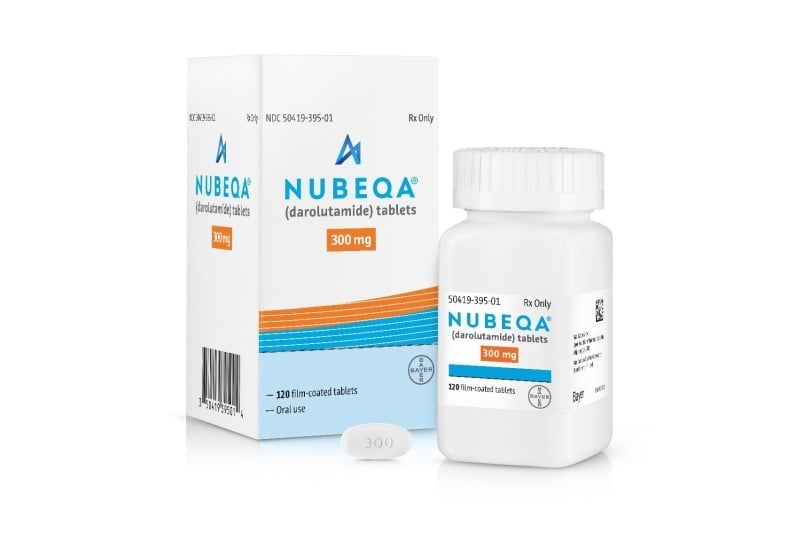Bayer’s Nubeqa, en route to blockbusterland, clinches 2nd win in prostate cancer subtype
17 Jul 2024

Preview
Source: FiercePharma
Bayer has claimed a second pivotal trial win for its blockbuster-to-be androgen receptor inhibitor Nubeqa, looking to reach the entire space of metastatic hormone-sensitive prostate cancer (mHSPC).
The German pharma now plans to submit these data for potential approvals around the world.
But not all patients can tolerate chemo. For patients with low-volume metachronous metastases, the current National Comprehensive Cancer Network (NCCN) guidelines only recommend ADT in combination with one of three hormone therapies without chemo as the preferred regimens.
Overall survival is a secondary endpoint in the current ARANOTE trial. Bayer in its Wednesday announcement didn’t touch on what that data point looks like. The safety profiles were comparable between the two treatment arms, the company said.
In a real-world study called DEAR based on medical records of 828 patients with non-metastatic castration-resistant prostate cancer—which was Nubeqa’s initial indication gained in 2019—patients who took Nubeqa experienced a lower adverse event rate compared with those who got Pfizer and Astellas’ Xtandi or Johnson & Johnson’s Erleada. Treatment discontinuation or progression to metastatic disease also occurred at a lower rate with Nubeqa compared with the other two second-generation androgen receptor inhibitorsandrogen receptor inhibitors.
In addition to the two existing tumor settings, Bayer is running the phase 3 ARASTEP trial to evaluate whether the addition of Nubeqa could improve on ADT in nonmetastatic hormone-sensitive prostate cancer with high-risk biochemical recurrence. That study could take some time to read out, with an estimated primary completion date in early 2027.
With an FDA go-ahead in November, Pfizer and Astellas’ Xtandi, first approved 12 years ago, has already become the first androgen receptor inhibitor to reach that earlier prostate cancer treatment setting.
On Bayer’s part, Nubeqa and the kidney disease drug Kerendia are considered key growth drivers for the company’s pharma unit. Two of Bayer’s top-selling drugs are facing major headwinds. The J&J-partnered blood thinner Xarelto has lost patent protection in Bayer’s territories outside the U.S., and the Regeneron-partnered eye med Eylea faces tough competition from Roche’s Vabysmo.
For more details,please visit the original website
The content of the article does not represent any opinions of Synapse and its affiliated companies. If there is any copyright infringement or error, please contact us, and we will deal with it within 24 hours.
Chat with Hiro
Hot reports
Get started for free today!
Accelerate Strategic R&D decision making with Synapse, PatSnap’s AI-powered Connected Innovation Intelligence Platform Built for Life Sciences Professionals.
Start your data trial now!
Synapse data is also accessible to external entities via APIs or data packages. Empower better decisions with the latest in pharmaceutical intelligence.





